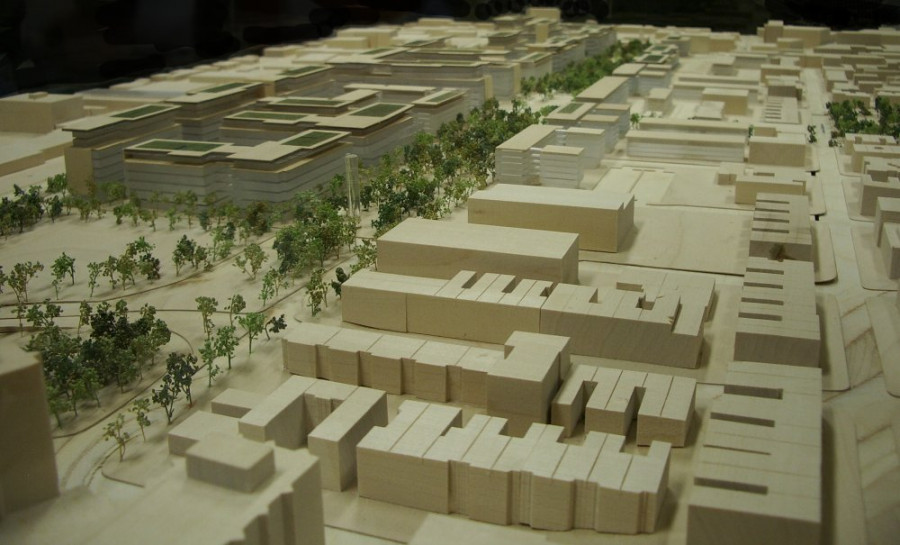UdeM Development Approved
Community Group Opposes…
A motion passed by City Council last week approving the construction of the controversial Outremont campus for the Université de Montréal has “terribly upset” community groups in Parc-Extension.
“We feel like we’ve been lied to,” said Giuliana Fumagalli, a spokesperson for the Citizen’s Committee of Parc-Extension.
Mary Deros, the city councilor for the Parc-Extension district, told Fumagalli and several other organizers that when the motion to approve the building of the campus came up, she would walk out on the vote. Deros instead voted in favour of the motion.
Deros said that in the days after making her promise, she reviewed more information on the project and some of the revised proposals. Deros then decided that the project was actually an “opportunity in our backyard.”
She said that since the project will take place over 20 years and meetings are being arranged to allow communities to voice their grievances, she is confident that UdeM will be open to responding to citizens’ concerns and that the new campus can be mutually beneficial to Parc-Extension.
The City Council passed two motions related to the project on Feb. 22. One was to approve new zoning regulations for the large triangle of land sandwiched between Outremont and Parc-Extension. The area was formerly a train yard owned by Canadian Pacific. The other motion was to approve an agreement between the city and UdeM to define the conditions of the project.
Parc-Extension community organizers wanted to delay the vote to do further “internal consultations” within the community to better inform people of what the project was. In 2006, UdeM purchased the land for $18 million to construct a new campus for the university. The estimated cost for preparing the construction site and building the required infrastructure is $120 million—$60 million of which will be covered by the City of Montreal.
The site is within the Outremont district, but Parc-Extension residents are worried about the impact the campus may have on their neighbourhood.
Concerns include the gentrification that might come with the estimated 10,000 students who would be moving into the area and the possibility of rising rent prices.
Marisa Celli, a press aide for the mayor’s office of Villeray-Saint-Michel-Parc-Extension, said because the way Parc-Extension is “closed in on itself,” community groups and Anie Samson, the mayor of the borough, are worried that the construction of the new campus might make access to the neighbourhood even more difficult or turn Parc-Extenstion into a “traffic calming zone.” Celli added that so far the presentations on how the campus will be built have not yet addressed those concerns.
Richard Deschamps, a member of the Executive Committee in charge of infrastructure, will now organize “programme particulier d’urbanisme” meetings to discuss how development between the university and the surrounding neighbourhoods will go forward. The meetings will be open to all residents and council members so they may voice their grievances about how the new campus might affect them and offer solutions to problems.
Now that the motions have passed, UdeM still must await funding approval from the province before proceeding with construction.
This article originally appeared in Volume 31, Issue 24, published March 7, 2011.



